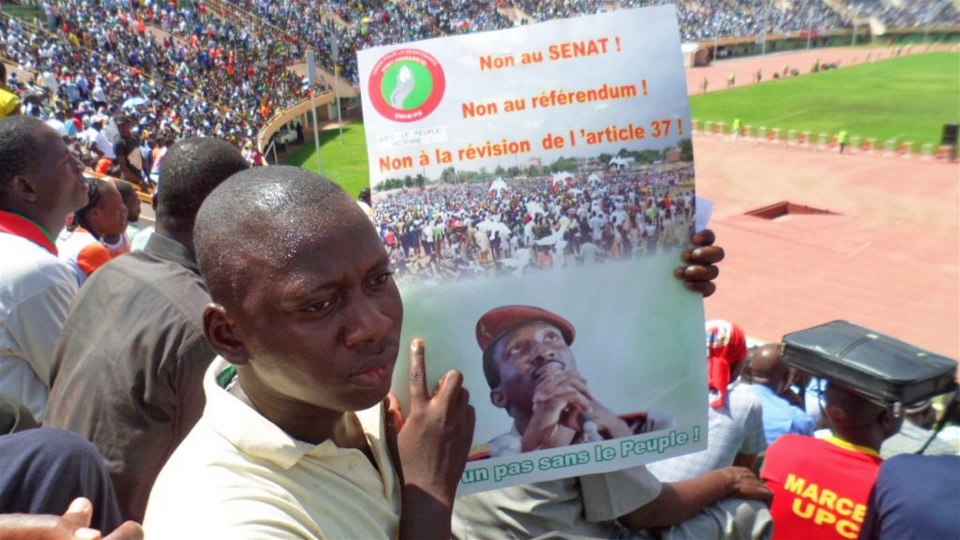Burkina Faso's Martyred Leader Inspires a New Generation of Activists

by Brian Peterson, Think Africa Press
Burkina Faso's President Blaise Compaoré announced his resignation Oct. 31, after protesters continued to mobilize against his rule. He had ruled since 1987, when Compaoré overthrew leftist leader Thomas Sankara—and quickly moved to reverse his legacy. In this Aug. 15 piece for Think Africa Press, writer Brian Peterson accurately predicted that "Sankara's ghost may be coming back to return the favor." —World War 4 Report
Thirty years ago, on August 4, 1984, the former French colony of the Upper Volta was re-baptized as "Burkina Faso" amidst a revolutionary process that proved to be one of the most inspiring, yet ultimately tragic, episodes of modern African history.
In 1983, the young Captain Thomas Sankara had come to power in a popularly-supported coup d'état, and—with broad support from leftist political parties, students, women, and peasants—initiated a range of ambitious projects, including the country's name-change, that aimed to make Burkina Faso more self-reliant and free of corruption. Sankara also sought to decentralize and democratize power in order to facilitate more participatory forms of governance, though elections for national offices were never attempted.
By many measures, this visionary project was enjoying a number of promising successes, but on October 15, 1987, Sankara's experiment and life were cut short when a group of fellow soldiers, led by his former close ally Blaise Compaoré and backed by foreign powers, murdered him. Compaoré promptly took the reins of government, effectively ending the revolution.
Recent Updates
5 hours 17 min ago
5 hours 56 min ago
10 hours 10 min ago
10 hours 40 min ago
1 day 3 hours ago
1 day 3 hours ago
2 days 12 hours ago
3 days 3 hours ago
3 days 4 hours ago
3 days 4 hours ago